[Editorial] Releasing the Cuffs: Trauma and Healing in Gerald’s Game (2017)
For Better or For Worse
Jess (Carla Gugino) and Gerald (Bruce Greenwood) are a middle-aged couple whose relationship is fading, ‘this is going to be good for us’ he tells her as they drive to a getaway house situated in an idyllic spot. It’s clear from the get-go however, that Jess is not convinced. Standing in a sunhat and loose-fitting dress, she takes in the scenery and heads to the water, a place that holds a dark significance not yet known to us. This connection with nature is immediately extended to her kind-heartedness at the sight of a hungry dog (much to Gerald’s disdain) to whom she feeds an expensive steak. Mobile phone signals are hard to come by and both the house and surrounding area are absent of other people; it should be blissful, but it soon becomes a living nightmare.
Jess has married Gerald ‘for better or for worse’ and as they head into the bedroom it becomes clear that her husband is a dark force in her life who operates under the principles of misogyny and self-interest. In a moment that seems to summarise their relationship, they engage in foreplay and she expects to see novelty handcuffs, but to her shock, Gerald produces the real thing. Although initially she consents to the sex game, it’s clear that she is uncomfortable, nervous and unsure. There is a disturbing shared beat when both Jess and the audience realise that she is now unable to escape and there is no one to hear her screams. What starts out as a harmless sex game soon escalates and verges into the territory of sexual assault. Despite being less assertive than her husband, Jess however, does not sit and take this unwanted behaviour and orders him firmly to: ‘fucking stop it, uncuff me now’. Instead of noting his wife’s distress, Gerald takes to blaming her for the lack of sex in their lives, essentially trying to psychologically manipulate her by claiming that he was only ‘trying to make things more exciting’. In response to this, Jess sits up tall and delivers her objection, she does not concede to him blaming her and when he threatens to leave the cuffs on, she bites back (literally) in retaliation. Clutching his heart, Gerald suffers a heart attack, collapsing on top of Jess becoming a literal restrictive weight as well as a metaphorical one. However, she quickly manages to push him off so she can have space to move, breathe and plan her survival.
Trauma, Toxicity and the Strength of Your Inner Voice
Cuffed to the bed and without the promise of help for miles around, Jess gradually realises that her husband is not coming back. Hours later, she is seen repeatedly talking to herself, a shrewd and clever skill that will keep her spirits high. The dog returns to hungrily gnaw at her husband but Jess manages to avoid a canine attack upon herself. This, it turns out, is the least of Jess’ worries as mirages of her husband and herself appear before her. Unfortunately, newly resurrected Gerald is just as toxic in death as he was in life, as he recounts an anecdote from a time when he called his wife a ‘support system for a cunt’ to a prospective client. His relentless tormenting of her continues and the fact that she must fight him even after he is gone from her life is a powerful metaphor for the scars that are left behind on victims from their abusers.
As the depressing realisation that no one is coming begins to sink in for us and for Jess, Gerald tells her that she could ‘pull until your wrists break, you are not getting out of those cuffs’ as the shackles take on a metaphor for the constraint she has been placed under by her husband and, as we will soon discover, another man in her life. In a refusal to be underestimated by her former husband, Jess continues to try and picture herself surviving; an important moment which shows she is a fighter and is engaging in positive visualisation - an incredible psychological tool. Imagining herself as victorious, the inner Jess stands before her, representing the part of her that knows her own self-worth and is committed to battling for her escape. Jess’ inner self is more direct than the Jess on the bed, but with time running out fast, acting quickly is what is going to save her from a tragic fate. ‘If you don’t wake up, you are going to die in those handcuffs’ she tells herself. These are the words that Jess needs to hear to motivate herself in order to spring into action.
Her inner voice might act as an inspiration, but she is also representative of the need for Jess to confront the truth about her past trauma: ‘You have been sleepwalking since you were 12 years old’ she tells herself and we are left with a question mark about not only the trauma she has had to deal with since childhood, but with a sad reflection on the fact that her adult relationships are neither supportive nor nourishing. Jess soon realises that there is an object that could help her which has been sitting in plain sight the entire time- the mobile phone on the bedside. She tries to reach out for this with her foot but is unable to make the distance. The stronger part of her however, does not allow this to weaken her spirits and instead remains pragmatic and focused: ‘ok scrap that, if you can’t get off the bed you need to live long enough for someone to find you on it’.
Jess and her inner voice discuss finding Gerald’s prescription for Viagra and how she has never mentioned this or discussed it with him. This acts as an echo on the theme that runs throughout the film around not disclosing knowledge for complicated reasons. The self-assured Jess points out that she was always grateful for those ‘little blue pills’ because they made her husband thirsty and as a result, the Jess cuffed to the bed realises that Gerald has left a glass of water on the shelf positioned above her head. Jess navigates the cuffs up the bedpost reaching up towards the shelf but is unsuccessful. However, her inner voice hints towards the new slip that she bought (which she also happens to be wearing) and Jess fashions a drinking straw out of the tag which is still intact on the back of the dress. This source of this smart and life-saving advice is evident all the time; it is coming from within Jess herself.
As she grows tired, Gerald spots a potential opening and encourages her to ‘fade away’ but she remains committed to rest rather than giving in, noting that: ‘I will need my energy’. Aware that she needs to rest to conserve her dwindling resources, she soon falls asleep. Whilst asleep, she is visited by the ‘Moonlight Man’ which she tells herself is ‘not real’, an indication that she may have had experiences like this before. Gerald tells her that ‘women alone in the dark are open books’ but she closes her eyes trying to push the dark images away. Unable to oppress her, he then tries a different tactic by reimagining that the unwanted visitor of her dreams is a monster hidden under her bed. To add weight to this, he refers to her as ‘mouse’, a throwback to the pet-name her father called her when she was little.
The Past Intermingled with The Present
Through use of flashbacks, we meet ‘Jessie’ (rather than Jess) as a child, who is vacationing with her family at a house by the water. An eclipse is taking place and a 12-year-old Jess stays behind with her father to watch this alone, while her siblings go out on a boat trip with their mother. While there is a fractured relationship between Jessie and her Mum, things with her father are even more troubling as he is shown to take a sexual interest in his daughter. As Jessie stays behind with him, our worst fears are realised once we watch him compliment her on the dress she is wearing whilst inviting her to ‘scoot closer’ so they can watch the eclipse together. At first, she remains innocent of his advances, but when he suggests that she sits on his lap and begins masturbating, she becomes confused and unsettled by her father behaving in this way towards her. As a knowingness slowly dawns on the child Jessie, her innocence is shattered and the present day Jess wakes up screaming.
Coming back to reality, Jess resumes her fight for survival by ensuring that blood is flowing to her legs after being cuffed all night to the bed. We learn that she never disclosed what happened to her as a girl to Gerald and in response, he berates her for this. Her inner voice tells her the uncomfortable truth that she married ‘into the only dynamic’ she knew and the similarities between her father and Gerald are clear to see; both men minimise, abuse and objectify her. Jess remarks upon how she has had to live both in the past and the present, and she details a dream featuring a woman in a red dress standing over a deep well looking into blackness. In this dream, (a clear depiction of an interaction between herself as child and adult) she is in the well staring up at the sky with only darkness behind her as the woman looks directly towards her. The well, she explains, was the place where she kept all her secrets, secrets that Jessie instinctively knew that the woman would: ‘rather die than tell’.
In an ongoing attempt to oppress her, Gerald tells Jess what she saw was not a ‘trick of the mind’ but death coming for her in the night. Determined not to allow him power over her, Jess closes her eyes and counts to 10 but when she reopens them we (and she) are taken back to the source of her trauma as she is now her child self post-ordeal. Her father apologises as she stands tall with her arms clutched uncomfortably around her waist. He floats the idea of ‘telling Mum’ because it is what they should do but also opposes this by planting the idea into Jessie’s head that her mother will assume it is her fault, playing on the tension already present in their relationship. By manipulating young Jessie and poisoning her with feelings of guilt, her father orchestrates it so that the idea of keeping it secret comes from her, rather than him. He warns a teary Jesse that if they don’t tell her mother today, they can never tell anyone, ever. At the moment this pact is sealed between them Jessie promises never to reveal what has happened; her innocence and carefree childhood now lost forever. Young Jessie then lies on the bed and there is a dissolve where her young body is positioned in the same shape of her now womanly body, cuffed to the bed.
She is met by the taunting, toxic nature of Gerald who tells her scoffing that the people who will start looking for them if they don’t return home, will be ‘my people’, making her feel unmissed and unimportant. He goes one step further remarking on how, to the world outside, they look like the picture of marital bliss. In behaving this way, Gerald becomes just like her father, implanting mistruths into her mind. As a result, Jess starts to realise that sooner or later she is going to die, and she begins to sing a lullaby; an attempt at soothing herself and an indication of her regressing into a child-like state.
Now in a dream, she is standing before the eclipse again, everything soaked in red as she (as a woman) goes into her bedroom where she sees her child self, handcuffed. In a heart-breaking and beautiful moment, she apologises to Jessie and urges her not ‘to be sorry, I want you to remember’. In exchange for this, her younger self advises that the adult Jess has had everything she needed to survive right from the beginning. This speaks not only to her current situation of being cuffed to the bed but to how she can draw from her inner resources for self-heal following her traumatic experience of abuse. She must remember, she tells herself, not the eclipse, but the moment after. We then flashback to a scene where young Jessie breaks a glass at the dinner table in response to her mother asking if she enjoyed watching the eclipse with her dad. Leaving the table with a cut hand, Jessie seems to convey her whole story to her mother in one look, this is not elaborated upon any further but it is clear that this is a painful memory for Jessie.
Shedding the Shackles of Abuse
Back in the present, Jess realises that her only option is to use the glass above her to mutilate her hand in order to release herself from the cuffs. Breaking the glass, she lodges it into the shelf and removes the cuff off her hand before reaching for the key and unlocking herself from the other cuff. She has freed herself from the constraints of the cuffs but also from the shackles of the oppressive male forces in her life. Ever resourceful, she washes the wound carefully and uses pantyliners as a dressing to prevent excess bleeding before collapsing in exhaustion on the floor. Waking up in the middle of the night, she tries to complete the last stage of her escape plan by releasing the car door with an automatic key but realises that not only is the dog back but so is the ‘Moonlight Man’. Rather than hiding in the house or running away, she moves towards the ‘Moonlight Man,’ limping and in a blood-stained dress with a renewed sense of empowerment. She follows this by surrendering her wedding ring to his treasure box of jewellery, a symbolism of her rejecting her toxic marriage before climbing into the car.
Driving through the woods she moves fluidly amongst the red-soaked eclipse (representative of her moving past and beyond this part of her life) but the ‘Moonlight Man’ grabs her calling her ‘mouse’, a reminder that she will always have the scars of her trauma in her mind (or in the back seat of the car) as this is part of her history. She spots a Police car and falling to the ground she survives both her past trauma with her father and the present trauma inflicted upon her by Gerald.
Now recovered, we see her writing a letter to her child self, describing how everyone accepted her trauma at face value; the insurance paid up, the headlines soon faded and life resumed. The hounding shadows of her abuse however continued to haunt her every night and take her back to the eclipse where she was visited by the ‘Moonlight Man’. What enabled her to make it through the nights is ‘you’ , she tells young Jessie and what she understands now is that her father’s shackles were silence and her husband’s were comfort. Ultimately, she stands in her own power and makes peace with herself. Healing from her experiences, Jess starts a foundation for victims like herself and tells her own story ‘every day’ to ‘every kid it could possibly help’, passing on her wisdom.
Six months after the incident, whilst looking through a newspaper, Jess reads a story about a crypt keeper who has been robbing graves, stripping corpses of their jewellery and dismembering bodies. The ‘Moonlight Man’ we learn, is a real-life criminal who prefers men to women and thus has spared Jess. In a fleetingly shot, she sits next to her young self in strength and support. Sometime after, we see Jess bursting into a packed courtroom during the trial of the ‘Moonlight Man’. As she walks right up to him (an embodiment of her father, husband and the trauma they have inflicted upon her), she confronts the jewel thief directly telling him ‘you are so much smaller than I remember’. The court falls silent as she leaves, walking off boldly into the world, not forgetting the trauma she has endured but now ready to begin a new chapter in her life.


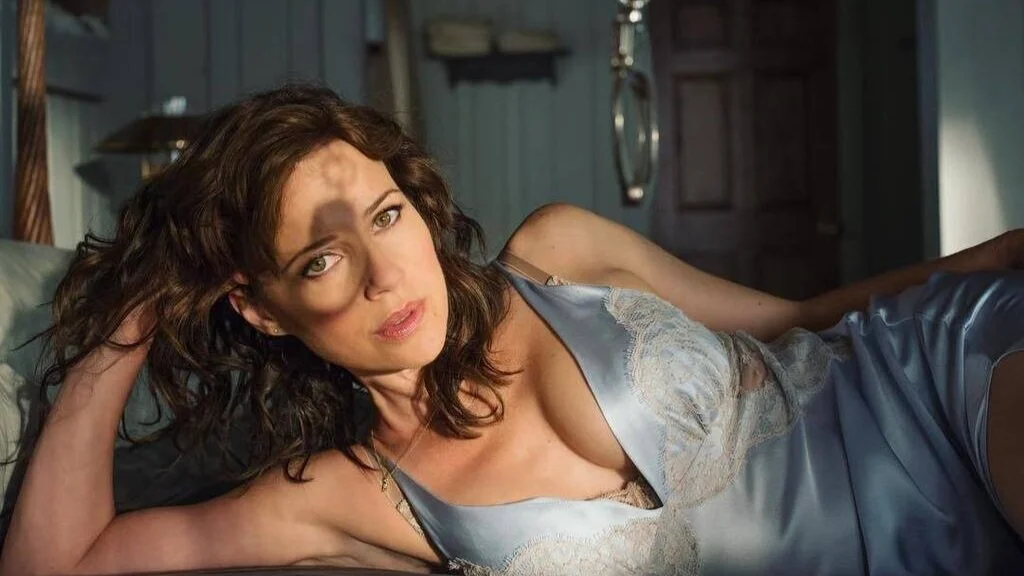
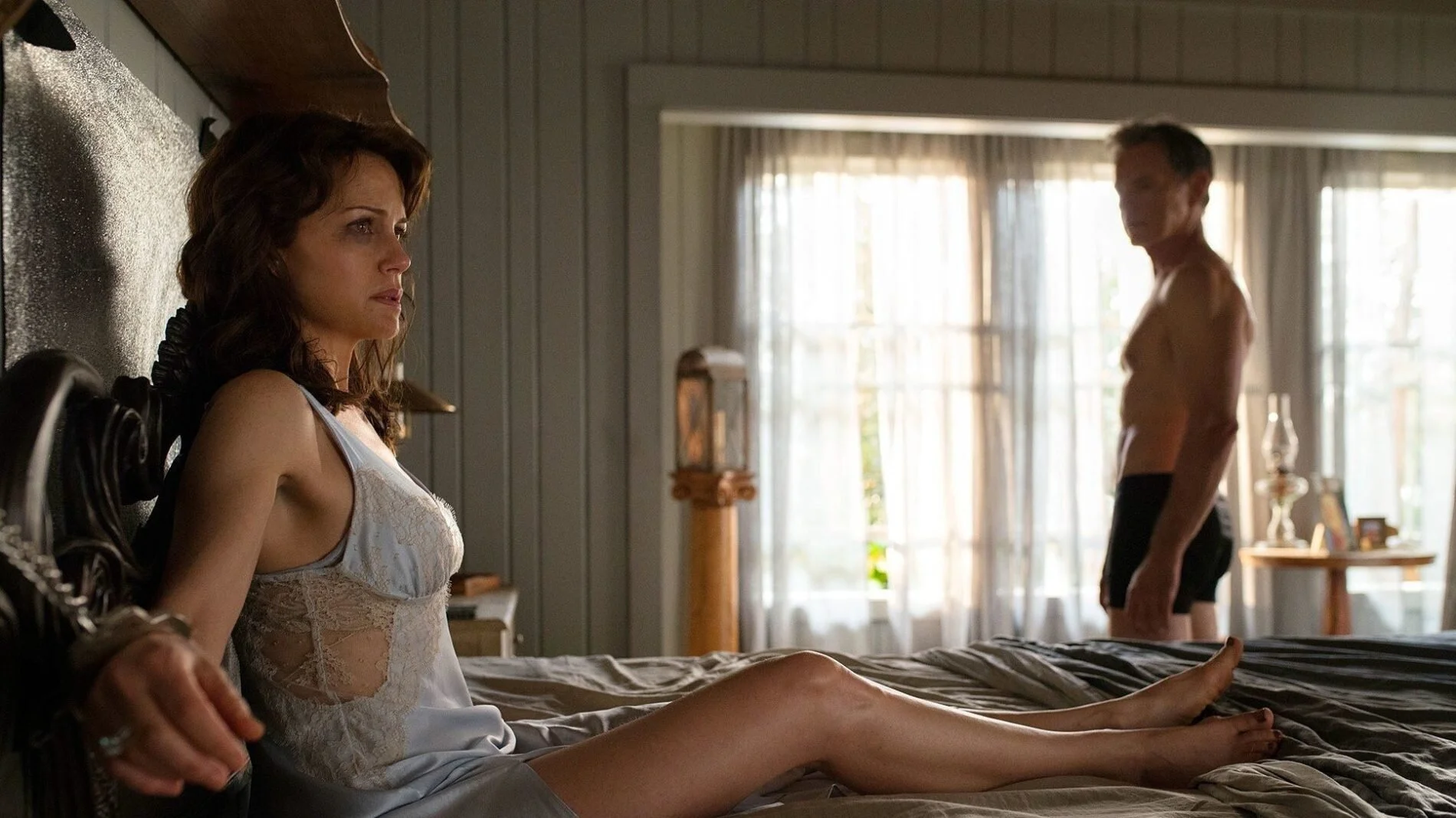
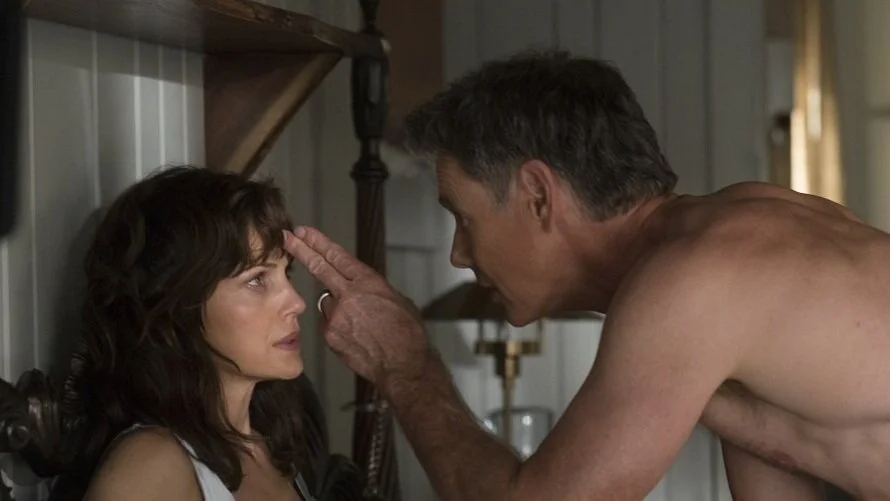
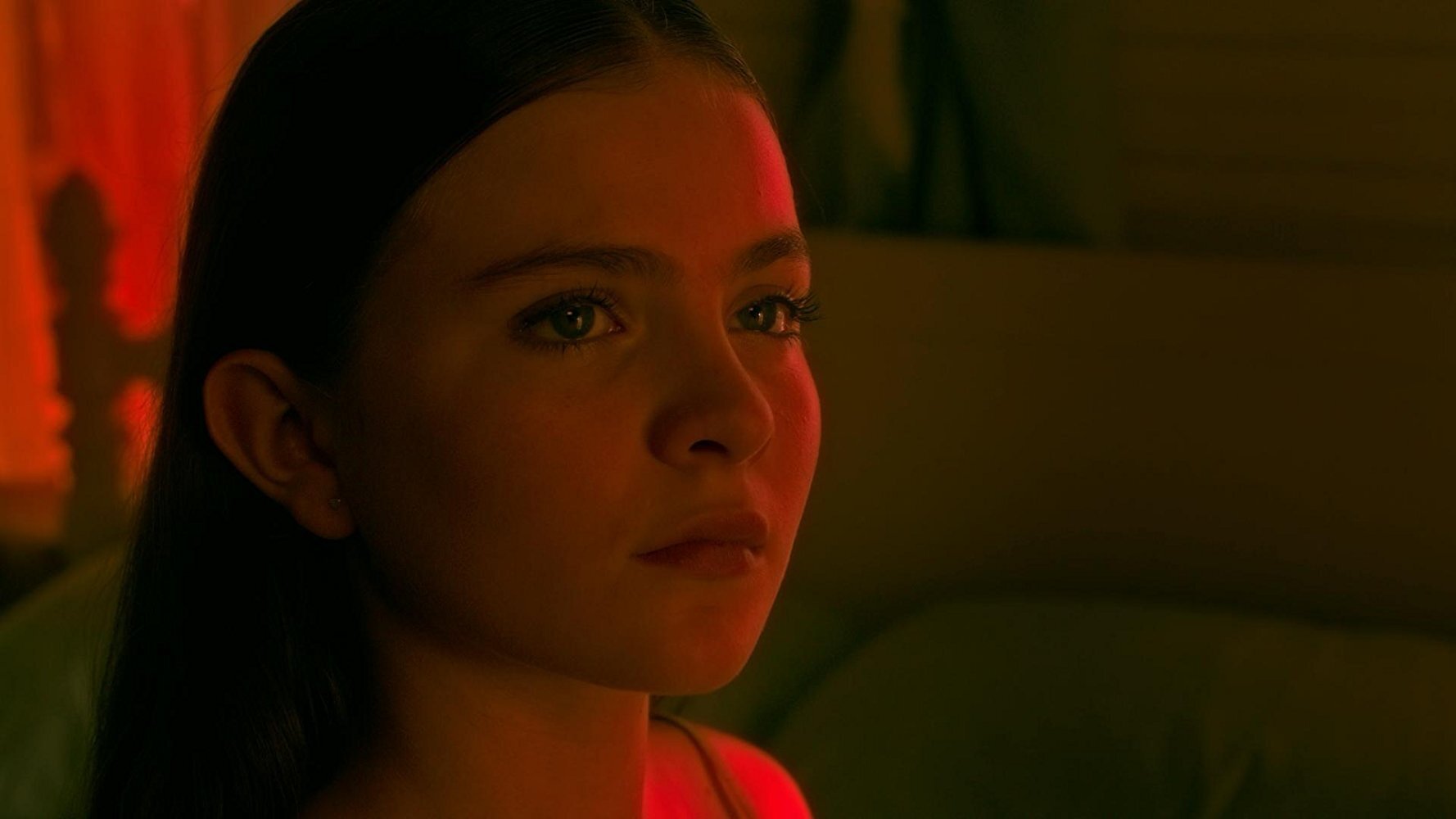
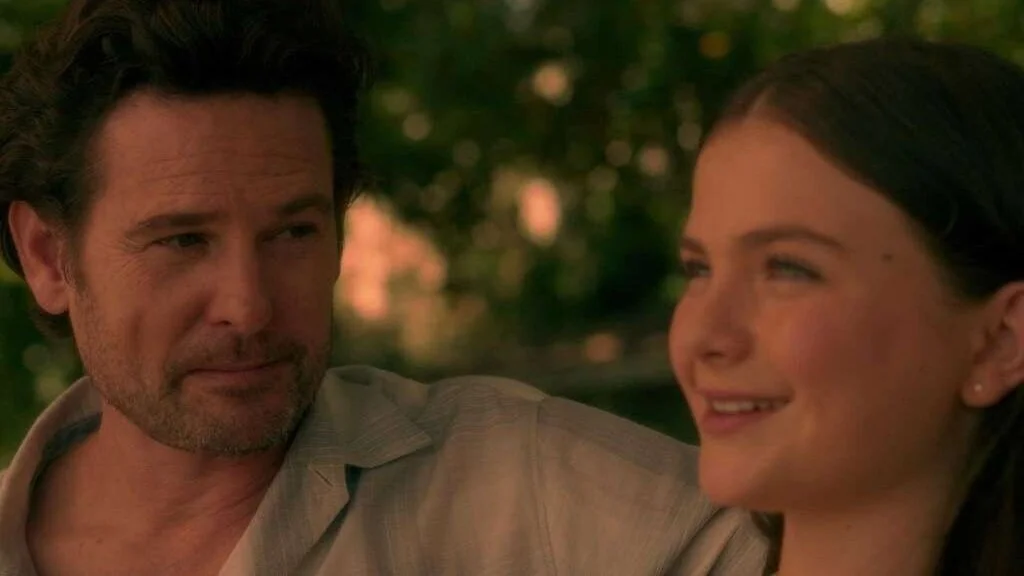
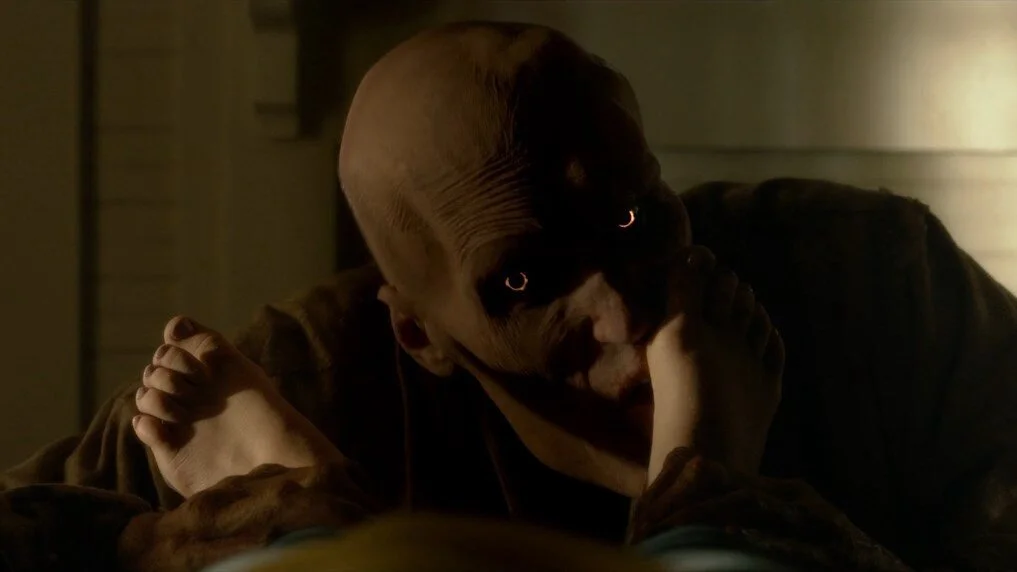












![[Mother of Fears] A Certain Hunger in Onibaba (1964)](https://images.squarespace-cdn.com/content/v1/5fe76a518d20536a3fbd7246/1687180983430-QK5FUJSDSFDNTVED8KNG/Screenshot+2023-06-19+at+14.17.03.png)
![[Mother of Fears] Mother Vs. Monster in Silent Hill (2006)](https://images.squarespace-cdn.com/content/v1/5fe76a518d20536a3fbd7246/1695485781119-H6GNP0G3J2TLPAOIABV7/Screenshot+2023-09-23+at+17.11.56.png)
![[Editorial] 5 Female Focused Horror Book Recommendations](https://images.squarespace-cdn.com/content/v1/5fe76a518d20536a3fbd7246/1696441981361-52EQCTJ7AT2QF1927GM7/919xtm6d3fL._AC_UF894%2C1000_QL80_.jpg)
![[Mother of Fears] Mothering in Silence in A Quiet Place (2018)](https://images.squarespace-cdn.com/content/v1/5fe76a518d20536a3fbd7246/1696445921315-HZJ2DZYQIH6VVWXBO2YL/Screenshot+2023-10-04+at+19.52.29.png)
![[Editorial] 10 Films & Events to Catch at Soho Horror Film Fest 2023](https://images.squarespace-cdn.com/content/v1/5fe76a518d20536a3fbd7246/1700819417135-299R7L4P0B676AD3RO1X/Screenshot+2023-11-24+at+09.41.52.png)
![[Mother of Fears] How I Love to Love Nadine in The Stand (2020)](https://images.squarespace-cdn.com/content/v1/5fe76a518d20536a3fbd7246/1690213172707-TKM9MZXK02EVCIX30M1V/Screenshot+2023-07-24+at+16.29.11.png)
![[Editorial] Top 15 Aliens in Sci-Fi & Horror Films](https://images.squarespace-cdn.com/content/v1/5fe76a518d20536a3fbd7246/1685351258912-P3ETEO2CL7F54CS4QKX3/image12.png)
![[Mother of Fears] I Don’t Wanna Be Buried in a Pet Sematary (1989) and (2019)](https://images.squarespace-cdn.com/content/v1/5fe76a518d20536a3fbd7246/1691328766069-QFNAVJOMFZVZ5CLU1RWM/Screenshot+2023-08-06+at+14.23.13.png)
![[Editorial] 9 Terrifying Cerebral Visions in Horror Movies](https://images.squarespace-cdn.com/content/v1/5fe76a518d20536a3fbd7246/1693509801235-X23OL50T1DVGECH0ZJK2/MV5BMjQ0MTg2MjQ4MV5BMl5BanBnXkFtZTgwMTU3NDgxMTI%40._V1_.jpg)
![[Editorial] 11 Best Werewolf Transformations in Horror Films](https://images.squarespace-cdn.com/content/v1/5fe76a518d20536a3fbd7246/1689240234098-HUPQC6L57AAHFJNT8FTE/Screenshot+2023-07-13+at+10.09.13.png)
![[Editorial] 9 Horror Nintendo Switch Games To Play](https://images.squarespace-cdn.com/content/v1/5fe76a518d20536a3fbd7246/1697214470057-3XZXX8N4LYIMDFWS6Z3P/Screenshot+2023-10-13+at+17.20.13.png)
![[Editorial] 9 Best Slashers Released Within 10 Years of Scream (1996)](https://images.squarespace-cdn.com/content/v1/5fe76a518d20536a3fbd7246/1695478839037-LOFHGVM3H6BMSZW7G83M/Screenshot+2023-09-23+at+15.15.11.png)
![[Editorial] Deeper Cuts: 13 Non-Typical Slashers](https://images.squarespace-cdn.com/content/v1/5fe76a518d20536a3fbd7246/1694951568990-C37K3Z3TZ5SZFIF7GCGY/Curtains-1983-Lesleh-Donaldson.jpg)
![[Editorial] 5 Slasher Short Horror Films](https://images.squarespace-cdn.com/content/v1/5fe76a518d20536a3fbd7246/1696358009946-N8MEV989O1PAHUYYMAWK/Screenshot+2023-10-03+at+19.33.19.png)
![[Editorial] Editor’s Note: Making a slash back into September](https://images.squarespace-cdn.com/content/v1/5fe76a518d20536a3fbd7246/1694354202849-UZE538XIF4KW0KHCNTWS/MV5BMTk0NTk2Mzg1Ml5BMl5BanBnXkFtZTcwMDU2NTA4Nw%40%40._V1_.jpg)
![[Editorial] Metal Heart: Body Dysmorphia As A Battle Ground In Tetsuo: The Iron Man (1989)](https://images.squarespace-cdn.com/content/v1/5fe76a518d20536a3fbd7246/1690190127461-X6NOJRAALKNRZY689B1K/Screenshot+2023-07-24+at+10.08.27.png)
![[Editorial] If Looks Could Kill: Tom Savini’s Practical Effects in Maniac (1980)](https://images.squarespace-cdn.com/content/v1/5fe76a518d20536a3fbd7246/1694952175495-WTKWRE3TYDARDJCJBO9V/Screenshot+2023-09-17+at+12.57.55.png)
![[Editorial] 8 Mind Horror Short films](https://images.squarespace-cdn.com/content/v1/5fe76a518d20536a3fbd7246/1693504844681-VPU4QKVYC159AA81EPOW/Screenshot+2023-08-31+at+19.00.36.png)
![[Ghouls Podcast] Maniac (2012) with Zoë Rose Smith and Iona Smith](https://images.squarespace-cdn.com/content/v1/5fe76a518d20536a3fbd7246/1696356006789-NYTG9N3IXCW9ZTIJPLX2/maniac.jpg)
![[Editorial] Top 15 Female-Focused Body Horror Films](https://images.squarespace-cdn.com/content/v1/5fe76a518d20536a3fbd7246/1689081174887-XXNGKBISKLR0QR2HDPA7/download.jpeg)
![[Editorial] Top 15 Female-Focused Mind Horror Films](https://images.squarespace-cdn.com/content/v1/5fe76a518d20536a3fbd7246/1691247166903-S47IBEG7M69QXXGDCJBO/Image+5.jpg)
![[Editorial] 8 Body Horror Short films](https://images.squarespace-cdn.com/content/v1/5fe76a518d20536a3fbd7246/1690838270920-HWA5RSA57QYXJ5Y8RT2X/Screenshot+2023-07-31+at+22.16.28.png)
![[Editorial] “I control my life, not you!”: Living with Generalised Anxiety Disorder and the catharsis of the Final Destination franchise](https://images.squarespace-cdn.com/content/v1/5fe76a518d20536a3fbd7246/1696444478023-O3UXJCSZ4STJOH61TKNG/Screenshot+2023-10-04+at+19.30.37.png)
![[Editorial] Eat Shit and Die: Watching The Human Centipede (2009) in Post-Roe America ](https://images.squarespace-cdn.com/content/v1/5fe76a518d20536a3fbd7246/1691245606758-4W9NZWE9VZPRV697KH5U/human_centipede_first_sequence.original.jpg)

![[Book Review] The Book of Queer Saints Volume II (2023)](https://images.squarespace-cdn.com/content/v1/5fe76a518d20536a3fbd7246/1697187383073-U78VOF5WVDHI9YE8M98A/Screenshot+2023-10-13+at+09.52.31.png)
![[Film Review] Kill Your Lover (2023)](https://images.squarespace-cdn.com/content/v1/5fe76a518d20536a3fbd7246/1697465940337-T55VQJWAN4CHHJMXLK32/56_PAIGE_GILMOUR_DAKOTA_HALLWAY_CONFRONTATION.png)
![[Film Review] V/H/S/85 (2023)](https://images.squarespace-cdn.com/content/v1/5fe76a518d20536a3fbd7246/1697455043249-K64FG0QFAFVOMFHFSECM/MV5BMDVkYmNlNDMtNGQwMS00OThjLTlhZjctZWQ5MzFkZWQxNjY3XkEyXkFqcGdeQXVyMTUzMTg2ODkz._V1_.jpg)
![[Event Review] Saw the Musical: The Unauthorized Parody (2023)](https://images.squarespace-cdn.com/content/v1/5fe76a518d20536a3fbd7246/1697187791989-OYMGLZO193B7XEMTJYGR/Screenshot+2023-10-13+at+10.01.44.png)
![[Film Review] A Wounded Fawn (2022)](https://images.squarespace-cdn.com/content/v1/5fe76a518d20536a3fbd7246/1695484054446-7R9YKPA0L5ZBHJH4M8BL/Screenshot+2023-09-23+at+16.42.24.png)
![[Book Review] Wylding Hall (2015)](https://images.squarespace-cdn.com/content/v1/5fe76a518d20536a3fbd7246/1695484930026-PFRK7O26SLME4JIC49EW/Screenshot+2023-09-23+at+16.59.04.png)
![[Film Review] Elevator Game (2023)](https://images.squarespace-cdn.com/content/v1/5fe76a518d20536a3fbd7246/1696440997551-MEV0YZSC7A7GW4UXM5FT/Screenshot+2023-10-04+at+18.31.42.png)
![[Film Review] Perpetrator (2023)](https://images.squarespace-cdn.com/content/v1/5fe76a518d20536a3fbd7246/1695483561785-VT1MZOMRR7Z1HJODF6H0/Screenshot+2023-09-23+at+16.32.55.png)
![[Film Review] Sympathy for the Devil (2023)](https://images.squarespace-cdn.com/content/v1/5fe76a518d20536a3fbd7246/1697186986143-QDVLQZH6517LLST682T8/Screenshot+2023-10-13+at+09.48.52.png)
![[Film Review] Shaky Shivers (2022)](https://images.squarespace-cdn.com/content/v1/5fe76a518d20536a3fbd7246/1696442594997-XMJSOKZ9G63TBO8QW47O/Screenshot+2023-10-04+at+18.59.33.png)
